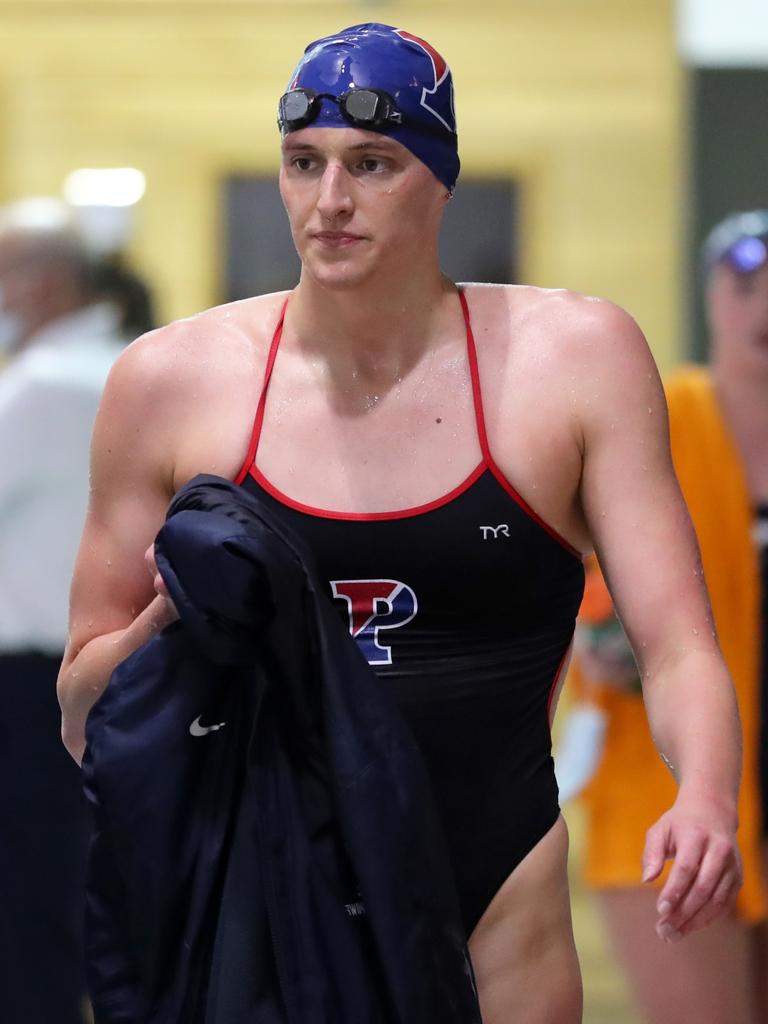Riley Gaines has emerged as a prominent voice in the ongoing discourse about gender policies and their implications on women's sports. As an athlete-turned-activist, her insights into the complexities of transgender inclusion have resonated with many who are concerned about preserving the integrity of female athletics. Her critiques often challenge prevailing narratives, sparking both admiration and controversy. This article delves into her recent critique of Nike's involvement in a transgender study, exploring the implications and reactions from various stakeholders.
Gaines' stance is rooted in her personal experiences as a competitive swimmer and her commitment to advocating for fair competition in women's sports. Her vocal opposition to policies that she believes undermine the rights of biological females has positioned her at the forefront of this contentious debate. In this context, her critique of Nike’s alleged funding of a study involving puberty blockers raises significant questions about corporate responsibility and ethical research practices. Let’s explore these issues further and understand the broader implications of such studies.
Nike's Role in Gender Studies: A Closer Examination
Nike, a global leader in athletic footwear and apparel, recently found itself under scrutiny for its potential involvement in funding a study concerning the effects of puberty blockers on children's athletic performance. This development has sparked widespread debate among athletes, activists, and consumers alike. Riley Gaines, a vocal advocate for women's sports, has been particularly critical of Nike's decision, highlighting what she perceives as a conflict of interest between profit motives and ethical considerations.
According to Gaines, Nike's venture into this controversial territory reflects a departure from its traditional focus on athletic excellence. Instead, it seems to align more closely with a progressive agenda that may not fully consider the long-term consequences for young athletes. Critics argue that such studies could normalize the use of medical interventions in youth sports without adequate understanding of their impact on physical health and psychological well-being.
This situation underscores the growing tension between corporate social responsibility and market-driven strategies. For companies like Nike, navigating these waters requires balancing innovation with ethics, ensuring that any research initiatives prioritize the welfare of participants above all else. As discussions continue, stakeholders are urging greater transparency and accountability in how such projects are conceived and executed.
Challenging Corporate Feminism: Riley Gaines' Perspective
Riley Gaines has consistently challenged what she refers to as fake feminism, accusing major corporations like Nike of exploiting feminist ideals for branding purposes without genuinely supporting women's rights. In her view, these companies often adopt superficial measures to appeal to socially conscious consumers while neglecting substantive actions that would truly empower women. This critique extends beyond mere rhetoric; it questions whether corporate initiatives genuinely aim to uplift women or merely serve as PR exercises.
Gaines points out that true empowerment involves protecting opportunities for biological females in areas such as education and sports. By funding studies related to transgender athletes, Nike risks undermining these efforts by prioritizing inclusivity over fairness. Such decisions can inadvertently contribute to the erosion of competitive parity in women's sports, which Gaines argues is essential for maintaining equitable opportunities.
Her perspective resonates with many who believe that genuine advocacy requires addressing structural inequalities rather than merely adopting trendy causes. As conversations around gender identity evolve, there remains a pressing need for corporations to demonstrate authentic commitment to advancing women's interests through meaningful action rather than symbolic gestures.
Public Reaction and Broader Implications
The backlash against Nike following revelations about its alleged funding of the puberty blocker study highlights the sensitivity surrounding issues of gender and sports. Many supporters of Riley Gaines commend her courage in speaking out against what they see as unethical practices by powerful entities. These individuals emphasize the importance of safeguarding women's sports from changes that might dilute their significance or alter their fundamental nature.
Conversely, detractors accuse Gaines and others of fostering divisiveness by opposing inclusive policies aimed at accommodating transgender athletes. They argue that scientific inquiry should be encouraged to better understand the complexities of human physiology and gender identity. This divide illustrates the challenges inherent in reconciling competing values within modern society.
Ultimately, this episode serves as a reminder of the intricate interplay between commerce, culture, and politics in shaping contemporary debates. It calls attention to the necessity of fostering dialogue across diverse perspectives while respecting individual rights and collective interests. Moving forward, stakeholders must work collaboratively to establish guidelines that promote both fairness and inclusion in the realm of competitive sports.

